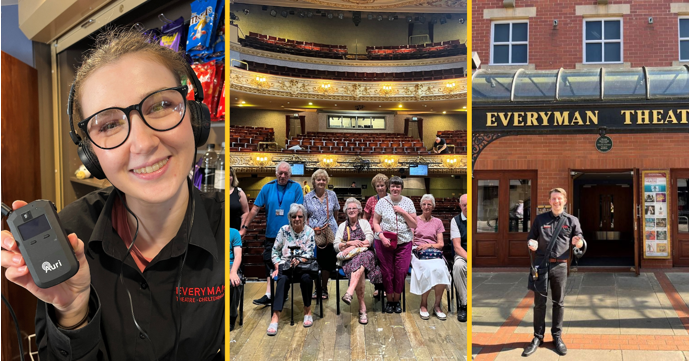When it comes to LGBTQ+ young people's mental health, without adequate support provided in fundamental areas of their lives, such as school and at home, they can feel isolated, unaware of the support available, or unable to access the support they need — and this can create a negative impact on their overall wellbeing.
St Edward's Cheltenham is offering insight into how teachers, parents and caregivers across the county can create a safe and non-judgmental space and better educate themselves in order to protect LGBTQ+ teens.
All schools — including those with a religious identity such as St Edward’s — will vary in their approaches to LGBTQ+ issues, ensuring they are consistent with church teaching and there is a range of teaching, support and processes available to schools in this area.
When talking about education in the curriculum, headmaster, Matthew Burke, said: 'As you would expect, we include teachings about respect, compassion, and human dignity, which can indirectly touch on topics related to the LGBTQ+ community.
'We also provide our
students with a broader understanding of
diverse identities and foster a more inclusive environment through RS and PSHE lessons, as well as visiting
speakers and clubs and societies.'
To help other schools follow suit, the key starting point is to create an open and inclusive culture.
Useful actions that schools can take include promoting a safe and welcoming environment where all students feel respected and valued; providing teacher training on inclusivity and recognising and addressing discrimination or bullying; and creating support systems such as student clubs, counselling services,or diversity and inclusion committees.
It's also important to encourage dialogue and open communication among students, parents and teachers about LGBTQ+ issues.
Teachers, parents and caregivers can develop a better understanding by educating themselves through various resources. Burke recommends reading books, articles and online content that provide accurate and up-to-date information about sexual orientation, gender identity, and the experiences of LGBTQ+ individuals.
Websites like the Human Rights Campaign (HRC), PFLAG (Parents, Families, and Friends of Lesbians and Gays) and Just Like Us offer valuable resources and educational materials.
Listening and communicating, creating safe and non-judgmental spaces for LGBTQ+ youth to share their experiences, concerns, and questions. Active listening and open communication are key to understanding their perspectives and needs. Be willing to engage in honest conversations and learn from their experiences.
As well as attending workshops and training, which can provide insights into the challenges faced by LGBTQ+ individuals and offer guidance on creating inclusive environments.
Seeking support networks, advocating for inclusion and being an ally can all help within your school or community.
'At St Edward’s we have taken steps to support our students, working towards creating a more inclusive environment for each and every student and member of staff within our community.
'Remember, creating a supportive environment starts with empathy, understanding and a willingness to educate yourself about LGBTQ+ experiences.'


.jpg?width=730&height=383&rmode=pad&bgcolor=ffffff&quality=85)

















